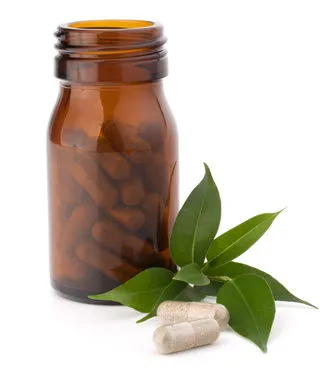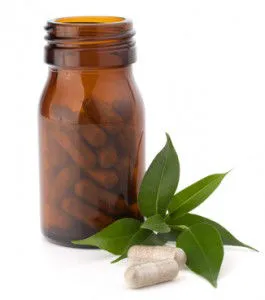
- Share on Facebook58
- Share on Pinterest
- Share on Twitter
Uncaria tomentosa, otherwise known as cat’s claw, is a Peruvian mountain rainforest herb that has been used to treat a variety of ailments over the centuries. It is a wood-like vine that can be found winding itself around the uppermost branches of rainforest trees. Because of the claw-like thorns found on its stem, Uncaria tomentosa became fondly known as cat’s claw.
Its traditional role was to aid in digestive disorders in ancient Peruvian medicine. Teas and tinctures were often prescribed to treat gastric ulcers, irritable bowel syndrome symptoms, colitis and leaky bowel syndrome.
Yet this potent herb’s healing properties range far beyond its ability to flush pathogens from the digestive tract and it has recently begun to catch the attention of modern herbalists and researchers.
The bark and roots of cat’s claw are the most viable source for the herb’s immune boosting alkaloids. Both pentacyclic oxindole alkaloids (POAs) and tetracyclic oxindole alkaloids or TOAs act as both immune system boosters and dampeners. The ability to act as both is the herb’s key strength.
While a weak immune system can lead to disease or illness, too much of an immune response can also lead to minor complications like allergies or much more severe reactions such as seizures.
Modern antibiotics are often made from the same compounds found in cat’s claw, however in their natural form, these compounds don’t come with the inherent risks found in their manufactured form.
When it comes to the alkaloid content of cat’s claw there are two varieties of the herb to consider. The original herb contains both POAs and TOAs, yet some modern herbalists believe that TOAs inhibit the effectiveness of POAs, which have the ability to bind with invading pathogens and flush them from the body. A hybrid TOA-free variety is also available, yet it is more expensive and some reports claim there is little evidence to suggest it is more beneficial.
 Along with its superior immune system regulating qualities, cat’s claw is also a known anti-inflammatory. It has often been used to treat cases of rheumatism, gout and other inflammatory conditions. Current research suggests that it may be an effective complimentary therapeutic treatment for cases of osteoarthritis.
Along with its superior immune system regulating qualities, cat’s claw is also a known anti-inflammatory. It has often been used to treat cases of rheumatism, gout and other inflammatory conditions. Current research suggests that it may be an effective complimentary therapeutic treatment for cases of osteoarthritis.
Cat’s claw can be consumed via teas, tinctures and capsules. While the risks of side-effects are slim, careful consideration should be taken by pregnant women and those taking blood thinners or on immune-suppressing medications.
-The Alternative Daily
Sources:
http://www.naturalnews.com/032917_cats_claw_herb.html#
http://www.herbwisdom.com/herb-cats-claw.html
http://www.ncbi.nlm.nih.gov/pubmed/12120814
http://www.ncbi.nlm.nih.gov/pubmed/17210508
http://www.wholeworldbotanicals.com/pdfs/CTCL_POA_TOA_Controversy.pdf
- Share on Facebook58
- Share on Pinterest
- Share on Twitter

